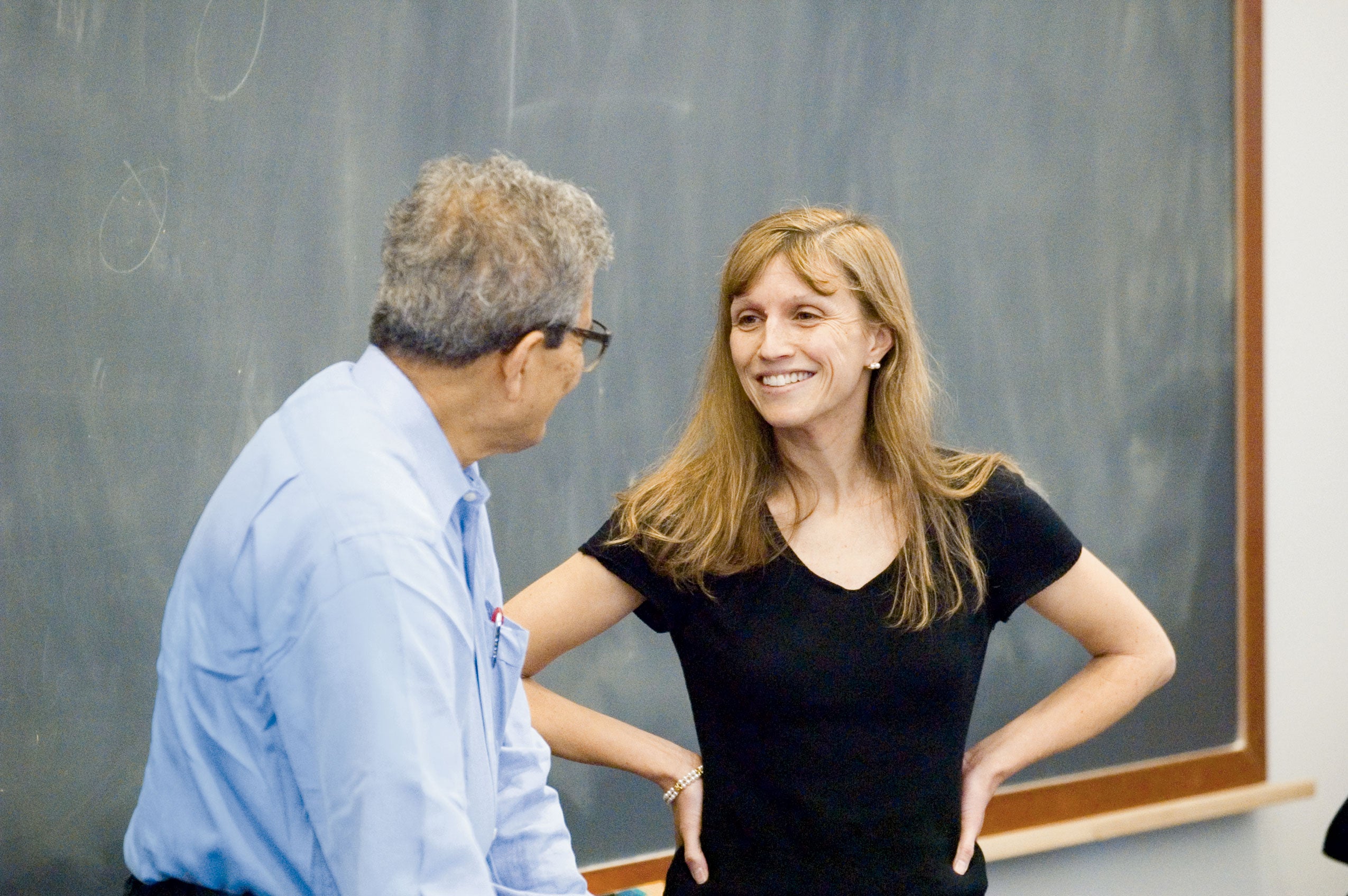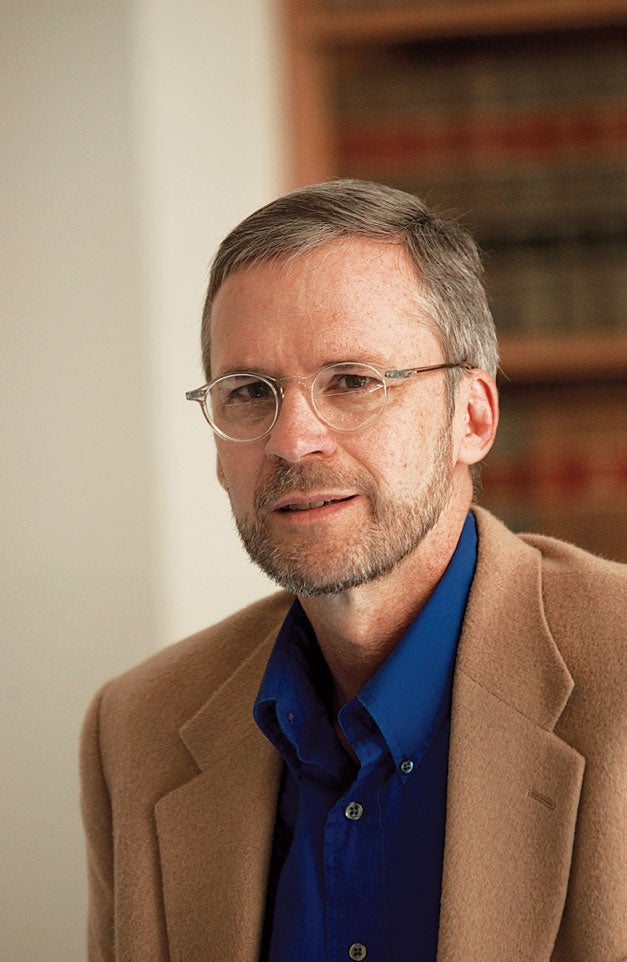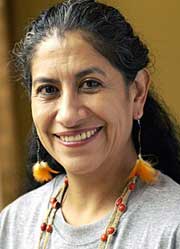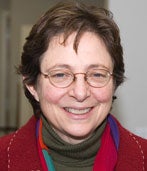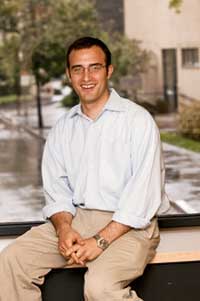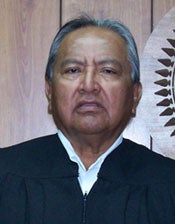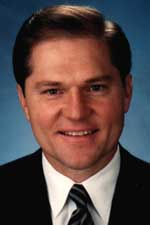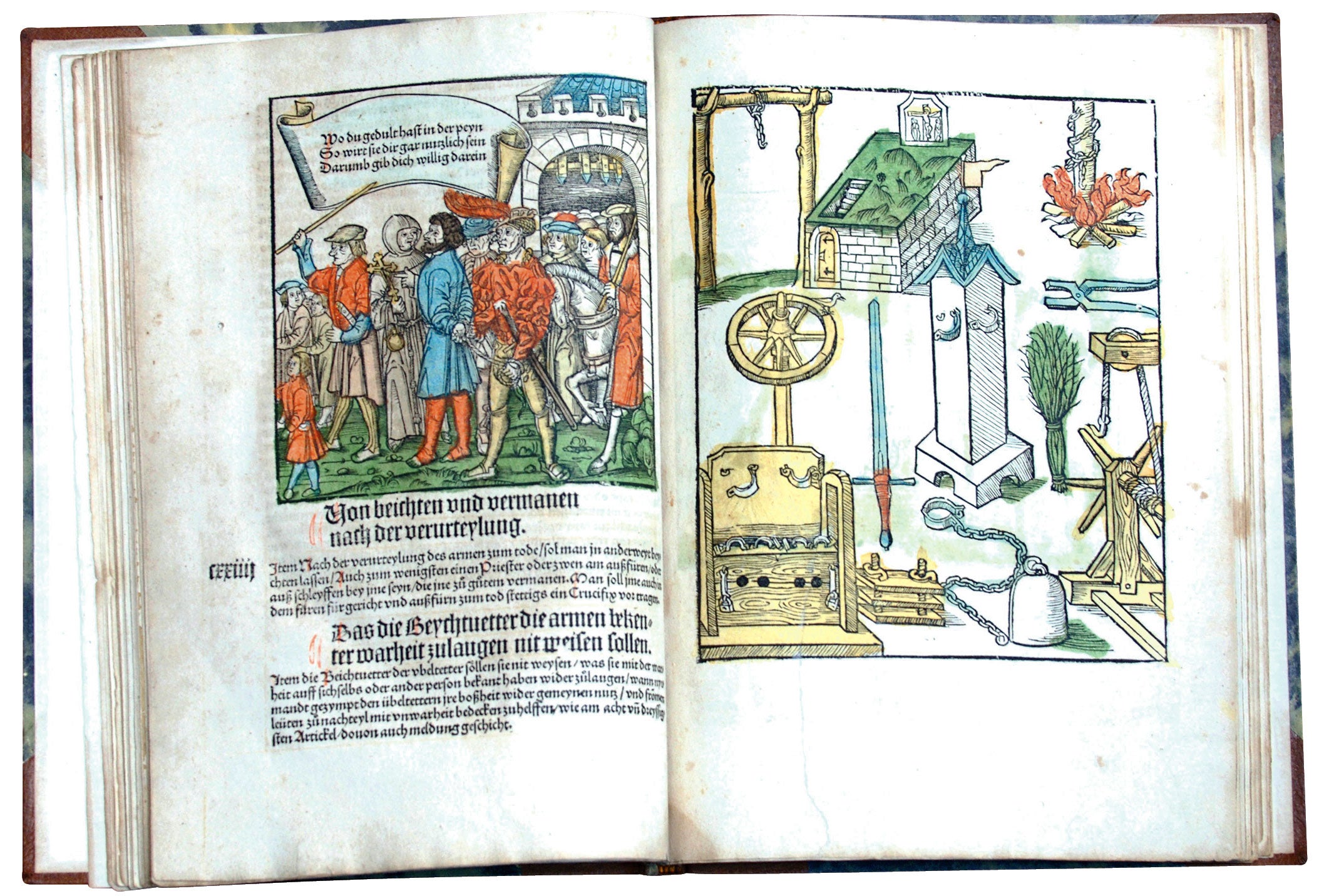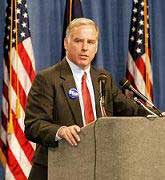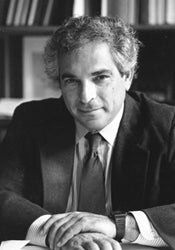Archive
Today Posts
-
Hearsay: Short takes from faculty op-eds
April 23, 2006
Judge Samuel A. Alito Jr.'s opponents have seized upon two memorandums he wrote when he was a junior lawyer in the office of the solicitor general....
-
Imagine a game in which two people--strangers--are told they will be given $100 to share, and that one of them will have the power to decide how much to offer the other.
-
Views from Chambers
April 23, 2006
Recent events have reminded us all of the importance of the judiciary in shaping legal rights and responsibilities. With the confirmation of two new Supreme…
-
The Katrina connection: HLS contributes to flood relief
April 23, 2006
After Hurricane Katrina hit the Gulf Coast, many HLS students felt helpless watching news accounts of the unfolding devastation while beginning fall classes. The law school had posted links for the university's matching donations program and announced plans to host 25 law students from Tulane and Loyola tuition-free. But HLS students sought their own ways to donate their time and talents.
-
Is the case for intelligent design designed intelligently?
April 23, 2006
Several school boards have recently mandated that science curricula include the teaching of intelligent design--the theory that all advanced life forms are so complex that they must have been designed by an intelligent force.
-
Conference gathers experts on Latino policy and legal issues
April 20, 2006
Thursday, April 20 marks the beginning of the ninth Harvard Latino Law and Public Policy Conference, with a keynote address by Maria Echaveste, former deputy chief of staff to President Clinton. The three-day event will address the growth of Latino communities in the United States and their relationship to Latinos abroad.
-
Clinical Instructor Susan Cole wins legal services award
April 19, 2006
Susan F. Cole, a clinical instructor at the Hale and Dorr Legal Services Center, recently won the 2006 Legal Services Award, presented by the Massachusetts Bar Association. The award honors an attorney for exceptional work in providing legal services to low-income groups.
-
Barron on eminent domain
April 17, 2006
Last summer in Kelo v. City of New London, the Supreme Court upheld a redevelopment plan for New London, Conn., that involved seizing private homes to enable commercial development near a major pharmaceutical company. New London argued the plan would jump-start the stalled local economy, and the decision, a 5-to-4 vote, affirmed the government's power under the Constitution to use eminent domain to take private property for economic development as long as just compensationis paid.
-
Martin Kurzweil, 2L, recently won two prominent awards along with co-authors William Bowen, the former President of Princeton University, and Eugene Tobin, former president of Hamilton College. This week, their book, "Equity and Excellence in American Higher Education," won both the 2006 Outstanding Book Award from the American Education Research Association and the University Continuing Education Association's 2006 Philip E. Frandson Award for Literature.
-
On Wednesday, April 12, the Supreme Court of the Navajo Nation will covene in the Ames Courtroom at Harvard Law School to hear the case of Perry v. Navajo Nation Labor Commission. The Navajo court will not only hear a current case while at Harvard, but also offer students the chance to gain first-hand insight into one of the nation’s most influential tribal courts.
-
Federal judge discusses Presidential powers after 9/11
April 10, 2006
On Tuesday, April 11, Judge Richard C. Wesley of the U.S. Court of Appeals for the Second Circuit will speak at Harvard Law School about legal issues arising from the war on terrorism. His speech, titled "Presidential War Powers in a Post-9/11 World," is sponsored by the HLS Federalist Society.
-
Three major U.S. corporations -- AIG, Bristol-Myers Squibb and Time-Warner -- recently amended their corporate by-laws in response to stockholder proposals submitted by Professor Lucian Bebchuk.
-
Tonight, HLS's Committee on Sports and Entertainment Law will host a panel discussion entitled, "Agents and the Changing Economic and Political Landscape of Baseball." Baseball agent Scott Boras and the Chief Executive of the Major League Baseball Players Association, Donald Fehr, will be among the panelists. The event – which is free and open to the public – will take place on the HLS campus at 7 pm.
-
SCHOLARLY PURSUITS: The following is a summary of a recent law review article by Professor Arthur Miller. Though ideas fueled the progress of the 20th century, scholars and the judiciary have been complacent about protecting the rights of idea originators.
-
A conversation with Michael R. Klein LL.M. ’67
April 1, 2006
Michael R. Klein attended Harvard Law School on a Brandeis Fellowship and received his LL.M. degree in 1967. Last year, after more than 35 years…
-
BEFORE NUREMBERG…
Included in a recent HLS library exhibit, these illustrations from a 16th-century book show instruments of torture and a criminal on the way… -
Harvard Law School's Criminal Justice Institute and Charles Hamilton Houston Institute for Race and Justice will co-host a three-day conference entitled "Re-Thinking Re-Entry: Confronting Perpetual Punishment."
-
This weekend, the convention launching the National Democratic Law Student Council will take place at HLS, hosted by the HLS Democrats. The new organization -- conceived of and initiated by Harvard Law students in collaboration with staffers at the Democratic National Committee -- will become the national umbrella organization for Democratic law students.
-
Symposium examines intellectual property reform
March 15, 2006
HLS's Journal of Law and Technology will host its 10th annual symposium, "Knowledge, Power and Invention: Staying Competitive in the Global Marketplace and the Role of IP Reform." The two-day event will explore the best ways to protect intellectual assets, promote creative innovation and implement legal reform.
-
International financial experts convene in New York
March 10, 2006
Today, approximately 80 private and public sector financial leaders will meet in Armonk, N.Y. to discuss issues affecting the future of the financial relationship between the EU and the U.S. The fourth annual "Symposium on Building the Financial System of the 21st Century: An Agenda for Europe and the United States" is sponsored by HLS's Program on International Financial Systems, along with the Centre for European Policy Studies.

